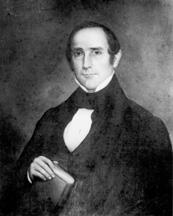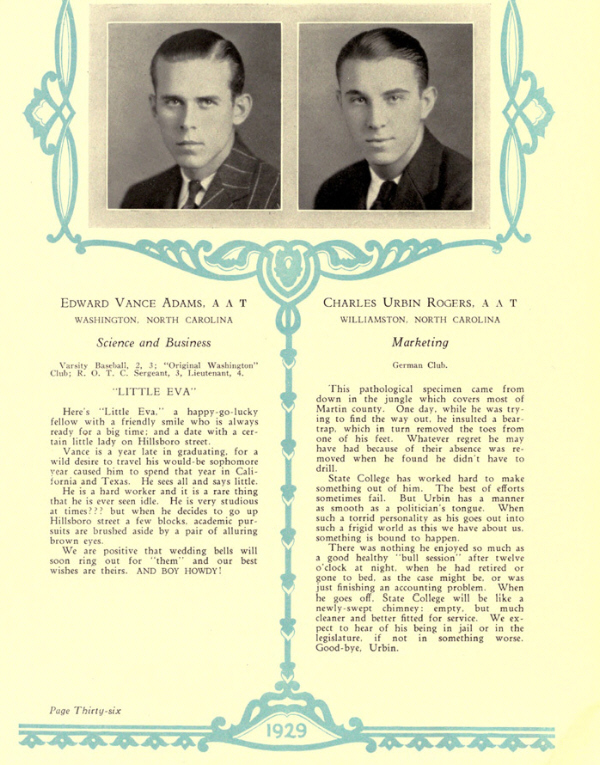Docton Warren Bagley commands a high rank among Martin County notables of the nineteenth century. While the Hassell, Biggs and other families held prominent places in the field of religion, Mr. Bagley distinguished himself as a Southern patriot, educator and business man.
Complete information about the old patriot is unavailable, since the records of his marriage and those of his parents with other valuable information were lost in the Martin County courthouse fire in 1885. However, the record of the family dates back more than 200 years to Perquimans County, where a Wiliam Bagley deeded land to Josiah Biggs in April, 1748. The first reference to the Bagleys in Martin County is found in a land deed issued by Edward Warren to William Bagley in 1778. The records indicate that William Bagely (who had a brother named John) married Sarah Warren and that Docton Warren Bagley was their son, born in Williamston in 1891. There was a sister named Saba, who married and moved to Mississippi.
William Bagley, father of Docton W. Bagley, was killed by lightening on Christmas Day in the early 1800s. He had stopped with his young son under a tree during a severe electrical storm. Apparently reared under trying financial circumstances, young Bagley cared for his mother until her death years later. His formal schooling was limited, but he was a self-made and self-educated man. He entered the mercantile business when a young man, operating a large establishment in Williamston on property now occupied by the post office on Main Street. On November 8, 1856, a group of prominent Martin County citizens met a the Martin County courthouse to form the Roanoke Steamboat Company, D.W. Bagley was named president on the very same day. Docton W. Bagley managed boat lines, handled mail contracts, supervised timberland operations, promoted education and maintained an interest in his town, county and fellowman, but above all he was a true patriot of the South. He was a confirmed snuff-sniffer and had a great habit of snapping his silk snuff handkerchief, especially when displeased.
Mr. Bagley married Elizabeth Gray. William Bagley, their oldest child and the only son was born at Williamston in 1824. During the Civil War he did code work and was a member of the Confederate Secret Service. He died in 1875, about three years before the death of his father. There were four daughters, as follows: Marietta, who married Henry Short of Martin County; Clementia, who married John S. Cheeck of Warren County; Margaret, who married Dr. Levi Smith Yates of Martin County; and Helen, who married Capt. L.L. Clements of Hamilton in Martin County.
After a lengthy illness, Docton Warren Bagley died at his home here in Williamston on February 27, 1878. He was buried on his property just off South Watts Street near the railroad. A number of years later, his remains were moved to a cemetery in Camden County by his relatives.
 Judge Asa Biggs was born in Williamston in the county of Martin on the 4th day of February, 1811. His father was the
Judge Asa Biggs was born in Williamston in the county of Martin on the 4th day of February, 1811. His father was the 